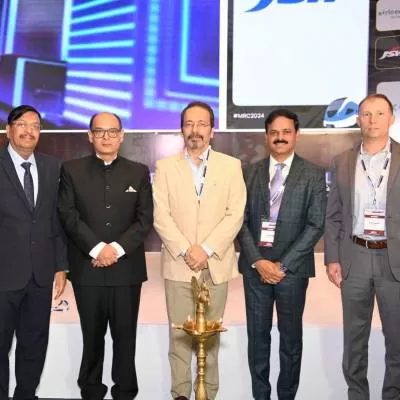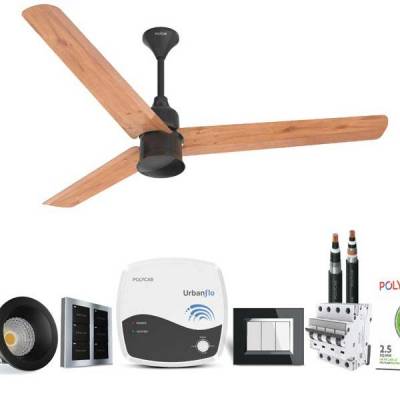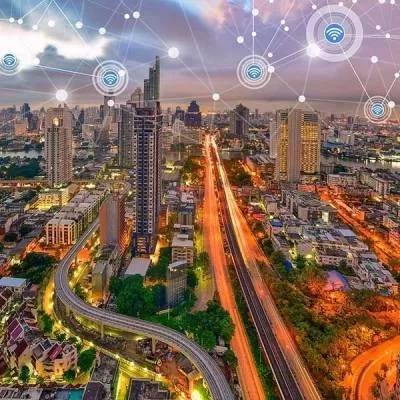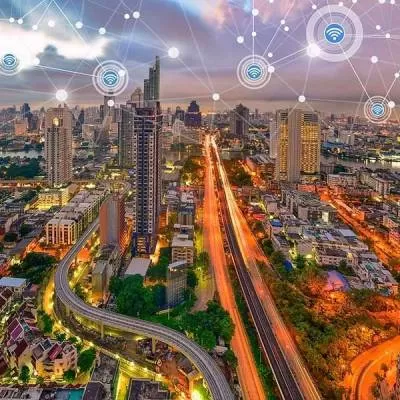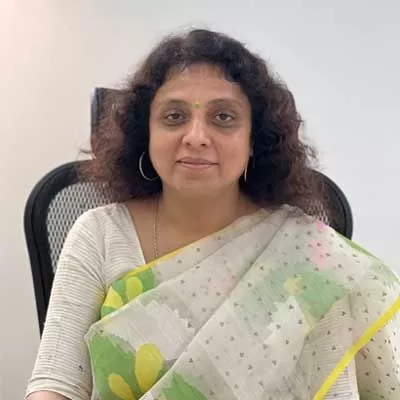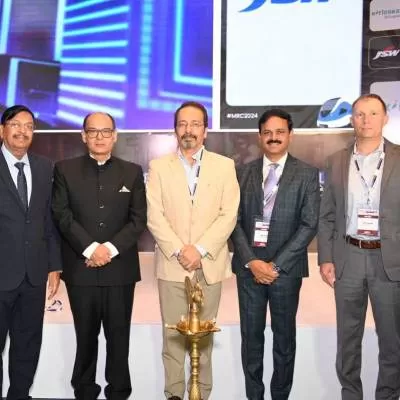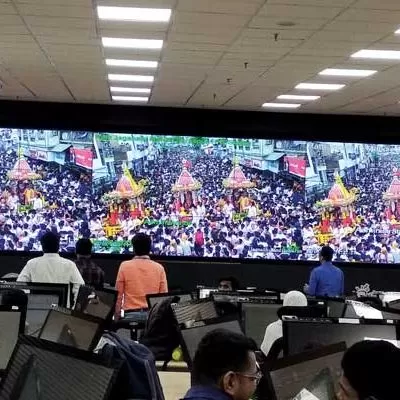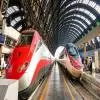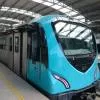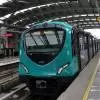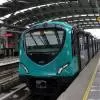- Home
- Infrastructure Urban
- SMART CITIES
- Internet of Things vs Internet of People

Internet of Things vs Internet of People
With constantly advancing infrastructure, sensors and codes, everything from refrigerators to barcodes can now be networked. But the real question is should they be? And if so, how will they benefit people and cities? The debate over IoT, not dissimilar to technology itself, is already heavily polarised. On the one hand, there are IoT proponents who tout technology to be a tipping point for civilisation. On the other, there are the skeptics who look upon IoT as just another form of consumerism and an excuse for tech-junkies to invest in more gadgets. While technology is often vilified to be a luxury for the elite, it is in fact more a part of everyday-life than even the most basic needs such as sanitation, food and water. Currently, there exist approximately 18 billion devices on the planet, which comes up to more than two devices per individual. This number is expected to go to 50 billion devices by 2020. There is no doubt that technology is everywhere, and it is here to stay.
IoT: For people and cities
The advent of Generation C may bring a shift in how IoT is viewed. It focuses on anchoring the purpose of using technology, and hence, maximising on the advantages drawn. However, for IoT to be relevant to smart cities, it must go beyond mere ´things´. Cities can gain a lot from IoT ethos provided these principles are applied to people, processes and information as well.
IoT for people: Today, people are connected to the internet through a variety of devices such as phones, computers, televisions, tablets, etc. As IoT evolves, people will be connected in more valuable and relevant ways. For example, people would wear skin sensors capable of tracking vital signs and raising an alarm when required. They will themselves turn into nodes on the larger network.
IoT for processes: IoT will ensure better processes so that the interactions between these elements are more relevant.
IoT for information processing: As IoT advances, the data gathered through devices will be combined in a more intelligent way. As data is converted to information, IoT will help us make better decisions, faster.
IoT for things: The premise of IoT, things themselves, form the framework of the network. IoT will play a vital role in future cities as these objects become more capable of gathering data and using them in a context-aware environment.
Real-time applications of IoT and technology
As technologies evolve, they will be better equipped to deal with hoards of information and make sense out of them for a better quality of life for the people. Some areas where smart cities can benefit from technology and IoT include:
- Identity: With solutions such as Aadhar, technology will address the ´India´ issue of the need for multiple identity papers to prove citizenship.
- Mobility: It will provide solutions for inter and intra-city mobility issues.
- Subsidy: It will enable governments to target subsidies and ensure they are allocated in more relevant areas.
- KYC: This technology will ensure data privacy, completely doing away with the risk of a paper trail.
- Government services: This, on the whole, will benefit from the use of technology in bettering processes.
CISCO has already started applying this principle as a part of its ´IoT´ initiative at the Hamburg UKE Medical Center. The system is focused on linking its young patients to their schools and friends, to create a better quality of life in the facility. It has piloted a rather encouraging pattern in the use of IoT for people.
There is no end to the applications of IoT and technology in areas such as polling, education, healthcare, energy, justice, etc. Technology may not be the only solution to the problems, but it does help in some way in alleviating the problems, making the city more competitive and productive. The internet of the future does not necessarily have to be what we fear it to be: Monopolised, flat and sinisterly opaque.
´We must find a way to leverage technology to make cities more sustainable and livable as opposed to making them more smart.´
-Angshik Chaudhuri, Chief of Staff, Smart+Connected Communities, Cisco Systems, Inc (speaking at UltraTech presents India Under Construction ´Smart SoCIeTY´ conference in New Delhi on November 28, 2015)
The Internet of Things (IoT) can be a facilitator of smart cities if it is leveraged for people. With constantly advancing infrastructure, sensors and codes, everything from refrigerators to barcodes can now be networked. But the real question is should they be? And if so, how will they benefit people and cities? The debate over IoT, not dissimilar to technology itself, is already heavily polarised. On the one hand, there are IoT proponents who tout technology to be a tipping point for civilisation. On the other, there are the skeptics who look upon IoT as just another form of consumerism and an excuse for tech-junkies to invest in more gadgets. While technology is often vilified to be a luxury for the elite, it is in fact more a part of everyday-life than even the most basic needs such as sanitation, food and water. Currently, there exist approximately 18 billion devices on the planet, which comes up to more than two devices per individual. This number is expected to go to 50 billion devices by 2020. There is no doubt that technology is everywhere, and it is here to stay. IoT: For people and cities The advent of Generation C may bring a shift in how IoT is viewed. It focuses on anchoring the purpose of using technology, and hence, maximising on the advantages drawn. However, for IoT to be relevant to smart cities, it must go beyond mere ´things´. Cities can gain a lot from IoT ethos provided these principles are applied to people, processes and information as well. IoT for people: Today, people are connected to the internet through a variety of devices such as phones, computers, televisions, tablets, etc. As IoT evolves, people will be connected in more valuable and relevant ways. For example, people would wear skin sensors capable of tracking vital signs and raising an alarm when required. They will themselves turn into nodes on the larger network. IoT for processes: IoT will ensure better processes so that the interactions between these elements are more relevant. IoT for information processing: As IoT advances, the data gathered through devices will be combined in a more intelligent way. As data is converted to information, IoT will help us make better decisions, faster. IoT for things: The premise of IoT, things themselves, form the framework of the network. IoT will play a vital role in future cities as these objects become more capable of gathering data and using them in a context-aware environment. Real-time applications of IoT and technology As technologies evolve, they will be better equipped to deal with hoards of information and make sense out of them for a better quality of life for the people. Some areas where smart cities can benefit from technology and IoT include: Identity: With solutions such as Aadhar, technology will address the ´India´ issue of the need for multiple identity papers to prove citizenship. Mobility: It will provide solutions for inter and intra-city mobility issues. Subsidy: It will enable governments to target subsidies and ensure they are allocated in more relevant areas. KYC: This technology will ensure data privacy, completely doing away with the risk of a paper trail. Government services: This, on the whole, will benefit from the use of technology in bettering processes. CISCO has already started applying this principle as a part of its ´IoT´ initiative at the Hamburg UKE Medical Center. The system is focused on linking its young patients to their schools and friends, to create a better quality of life in the facility. It has piloted a rather encouraging pattern in the use of IoT for people. There is no end to the applications of IoT and technology in areas such as polling, education, healthcare, energy, justice, etc. Technology may not be the only solution to the problems, but it does help in some way in alleviating the problems, making the city more competitive and productive. The internet of the future does not necessarily have to be what we fear it to be: Monopolised, flat and sinisterly opaque. ´We must find a way to leverage technology to make cities more sustainable and livable as opposed to making them more smart.´ -Angshik Chaudhuri, Chief of Staff, Smart+Connected Communities, Cisco Systems, Inc (speaking at UltraTech presents India Under Construction ´Smart SoCIeTY´ conference in New Delhi on November 28, 2015)


